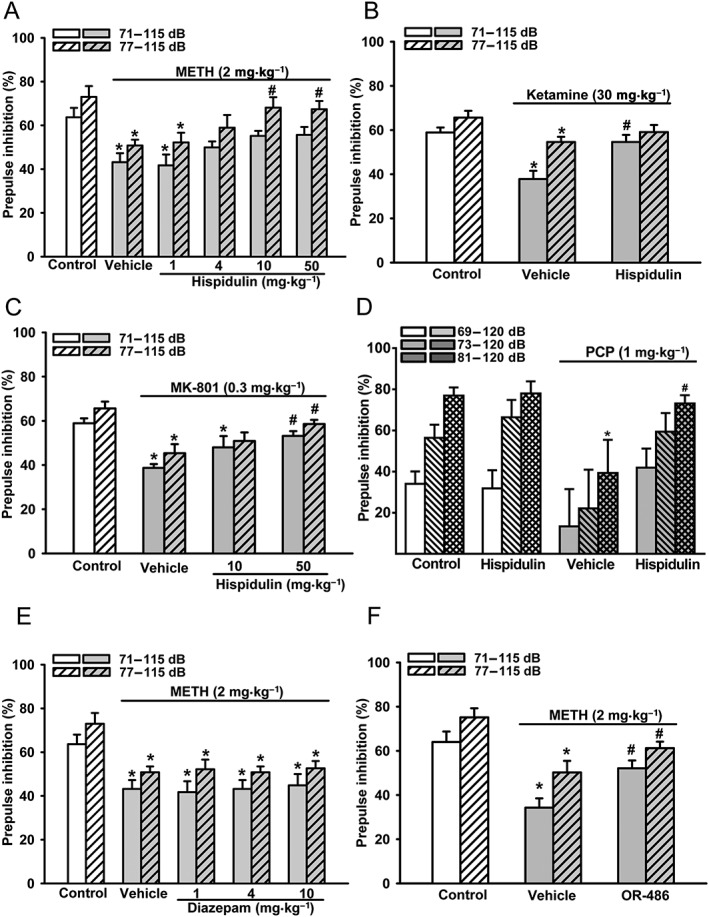Figure 2.

Effects of hispidulin, diazepam and OR‐486 on disruptions of prepulse inhibition of acoustic startle response (PPI) in mice. PPI disruptions were induced by methamphetamine (METH‐PPI), ketamine (KI‐PPI), MK‐801 (MK‐PPI) or PCP (PCP‐PPI). (A) Effects of hispidulin (1, 4, 10 and 50 mg·kg−1, i.p.) on METH‐PPI. (B) The effect of hispidulin (10 mg·kg−1, i.p.) on Ketamine‐PPI. (C) Effects of hispidulin (10 and 50 mg·kg−1, i.p.) on MK‐PPI. (D) The effect of hispidulin (10 mg·kg−1, i.p.) on PCP‐PPI. (E) Effects of diazepam (1, 4 and 10 mg·kg−1, i.p.), an α6GABAA receptor‐inactive classical benzodiazepine, on METH‐PPI. (F) The effect of OR‐486 (10 mg·kg−1, i.p.), a selective COMT inhibitor, on METH‐PPI. The magnitude of PPI was measured by the inhibition ratio of the startle response in mice receiving a 115 dB acoustic stimulation with and without a prepulse of 71 dB (71–115 dB) or 77 dB (77–115 dB) 120 ms ahead, except in the PCP‐PPI experiment where three startle protocols, 69–120, 73–120 and 81–120 dB, were used. Mice were i.p. pretreated with the tested drug or vehicle for 10 min, followed by methamphetamine (2 mg·kg−1, i.p.), ketamine (30 mg·kg−1, i.p.) or PCP (1 mg·kg−1, s.c.) for 10 min, or MK‐801 (0.3 mg·kg−1, i.p.), 15 min, before the PPI test. The control group of mice was treated with normal saline 10 min before the PPI test. Data shown are means ± SEM; n = 8. * P < 0.05, significantly different from the control group; # P < 0.05, significantly different from the vehicle group; one‐way ANOVA with Tukey's post hoc test.
